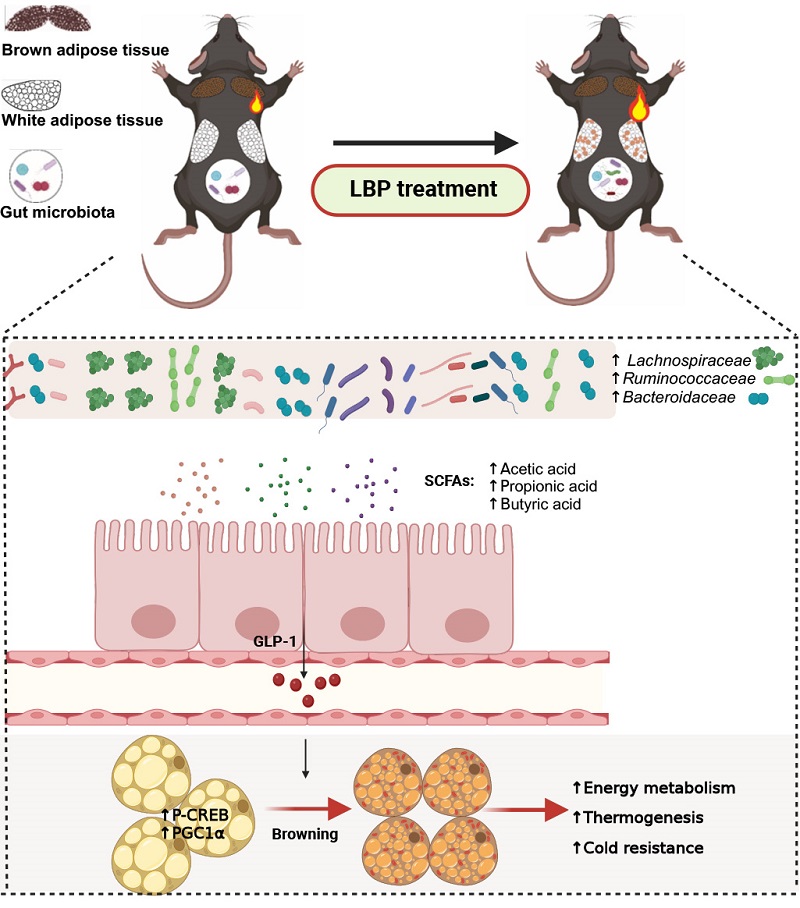
Lycium barbarum is a traditional and valuable medicinal herb in China. It has the effects of "strengthening muscles and bones with prolonged use, promoting longevity, and resisting cold and heat", according to "Ben Cao Gang Mu (Compendium of Materia Medica)", an encyclopedic work on traditional Chinese medicine.
However, the scientific explanation of these effects has not yet been deciphered until recently.
A team of researchers from the Chinese Academy of Sciences (CAS) have now, for the first time, revealed the scientific secrets behind the "cold and heat resistance" effects of Lycium barbarum.
“They exert the 'cold and heat resistance’ effects by promoting the browning of white adipose tissue and increasing thermogenesis, thereby resisting cold stress,” said CHEN Chang from CAS Institute of Biophysics, corresponding author of the study.
Using C57BL/6 mice as a model, CHEN and his collaborators at the Shanghai Institute of Materia Medica of CAS conducted long-term treatment with Lycium barbarum polysaccharides (LBP) and found that these polysaccharides helped maintain the body temperature of mice under cold stress.
This effect was achieved by promoting the browning of white adipose tissue, increasing energy expenditure, and enhancing thermogenic function.
Further mechanistic studies revealed that supplementation with LBP increased the abundance of Bacteroidetes in the gut microbiota of the mice, reduced the Firmicutes/Bacteroidetes ratio, and increased the abundance of short-chain fatty acid-producing bacteria such as Lachnospiraceae, Ruminococcaceae, and Bacteroidaceae, as well as the levels of short-chain fatty acids in the cecal contents.
The release level of GLP-1 in the gut was found increased, which was associated with enhanced thermogenic function through the activation of the CREB/PGC1α signaling pathway in inguinal white adipose tissue (iWAT), leading to increased energy expenditure.
The study offers a possibility for LBP to become a safe dietary supplement for populations in cold environments.
This is the first scientific connotation of the "cold and heat resistance" efficacy of traditional Chinese medicine, and provides a scientific reference for interpreting the principles of other traditional Chinese herbal medicines with similar effects.
Results of the study were published in The FASEB Journal on September 4, 2024.

Lycium barbarum polysaccharides enhance thermogenesis and energy metabolism by regulating gut microbiota, thereby improving tolerance to cold stress. (Image by CHEN Chang's group)

86-10-68597521 (day)
86-10-68597289 (night)

52 Sanlihe Rd., Xicheng District,
Beijing, China (100864)

